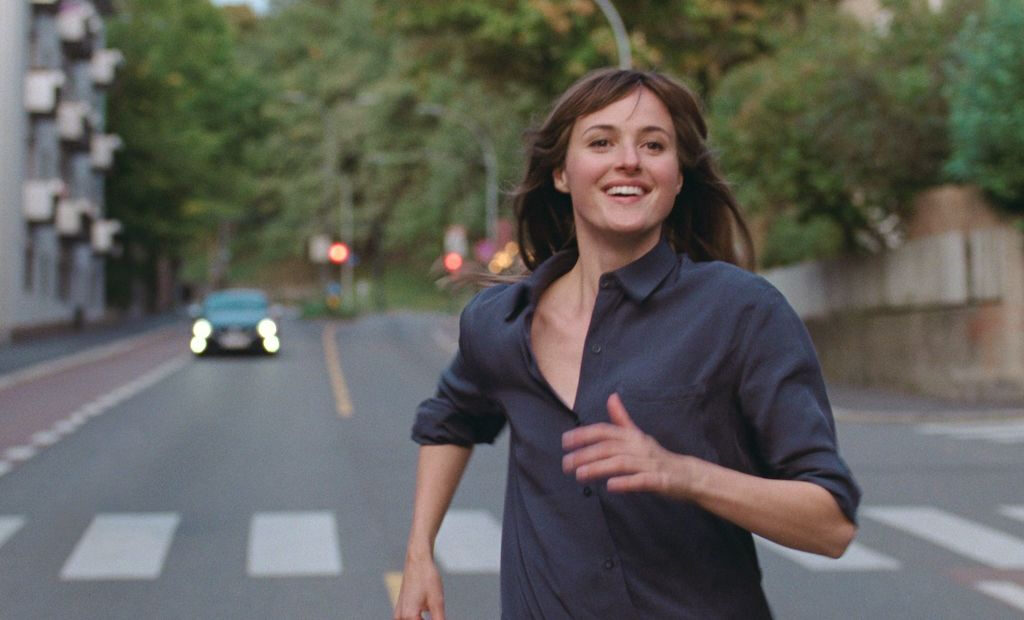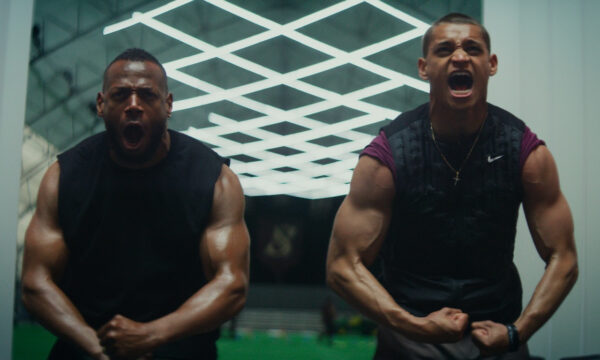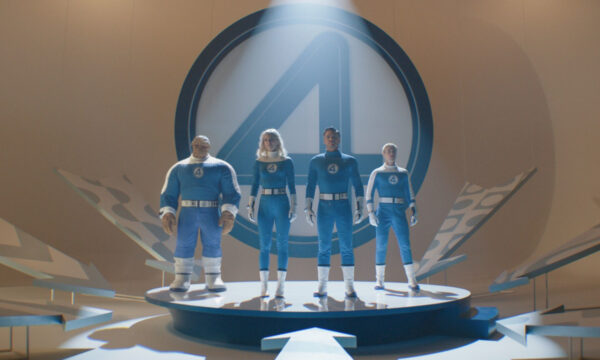“They saw me, and they saw women”: An interview with Renate Reinsve about The Worst Person in the World

It’s not as though most films have hundreds of millions of dollars to spend on marketing in order to drive themselves into the general public’s consciousness. Norwegian director Joachim Trier’s sublime feature, The Worst Person in the World certainly hit the ground running when it premiered in Cannes last July, generating rave reviews and the positive word of mouth that money can’t buy – not to mention Best Actress for the film’s star, Renate Reinsve. She plays Julie, a somewhat dissatisfied young woman trying to get a grasp on her own sense of identity. The playing field isn’t level, and Julie doesn’t quite understand the rules of the game. Shortly after the film was nominated for two Oscars, and ahead of its UK release, we spoke with Renate Reinsve.
How much of yourself did you see in Julie?
I saw my own life in such a new perspective, and it was so liberating. From an acting perspective, to have a character that’s raw and unpolished, and you don’t know half the time if you like her or not… But she is very likeable – so complex and complicated – so that really threw me off. And also, just going through it thematically, it’s about love, and how complicated it is, and how many contradictory emotions you can have at the same time, and building those emotions on top of each other, and seeing how detailed and complex one situation – or one moment – can be. It was really liberating, as a human being and as an actress.
In some of the press coverage during the film’s Cannes debut, there was some confusion about who the title refers to. Is Julie really the worst person in the world, when all she’s really doing is trying to find herself?
It wasn’t the title until later, and I remember thinking, “Oh, right – it’s probably going to be my face on the poster, and it’s going to say The Worst Person in the World.” No, I’m kidding. In Norway, we have this saying; there’s a lot of self-deprecation in Norway. If you fail your expectations, or if you just hurt someone, you say: I feel like the worst person in the world. So it’s a catchy phrase in Norway. And that’s the feeling that she has – she can’t really accept herself. And you see her at the start of the film, being restless and not being able to trust in herself, and it’s hard for her to confront herself – she doesn’t like to be in her own emotions, and that’s where that comes from. She feels like she’s the worst person in the world.
It seems as though Julie is afraid to settle down. When she meets Axel (one of her love interests), it could seem like she has hit the jackpot. Why is domesticity and the idea of settling down so scary for her?
If you make a choice, all the other choices are left out, so you feel trapped in that choice; and I think in your 20s you feel that everything is open, and you can be whatever you want to be – for some people, not for everyone, of course. You can be with whoever you want to be with, and you think that that’s going to last forever, and then you pass 30 and there are different expectations. You’re supposed to find that long-term relationship, and you’re supposed to know what to do and who to be. I think with Julie and Axel, she’s in such a desperate search for an identity and for peace of mind about who she is that she needs someone to define her. I feel she falls in love with the way he sees her too – because she’s aware (not consciously, but subconsciously) of that social structure of being in a relationship and being defined by the way that he is – it isn’t really what she wants anymore. She needs that space, that room of her own, to settle down, to be free and to accept herself. She can’t have someone else. So I agree – he is perfect for her in so many ways. I love that for a romantic film: she needs to first find that space for herself, before she can move on and find someone.
Were there any specific performances that inspired you while you were preparing to play Julie?
We talked about Katherine Hepburn and Diane Keaton, you know, for the levity of the movie. But I have been really watching Isabelle Huppert a lot, and Charlotte Gainsbourg – especially in Antichrist. I haven’t seen the worst stuff in that movie actually, but I’ve really studied her performance. The way she talks about and handles sorrow and losing someone is so profound. It’s really inspiring. I love films and acting that goes deep into that sphere, but I also watch Saturday Night Live and Kristen Wiig, because I love to laugh. And Zach Galifianakis – if I’m saying that right. I guess it’s a little bit from everywhere. The levity in the movie is also based on Julie being sad, and being lonely. When she sneaks into that wedding and flirts – testing the boundaries about what cheating actually is – it comes from a place when she doesn’t want to go into her big existential feeling that she’s lost and really sad, and it surprises her just how sad she is. Not being able to have that feeling, she makes her own fun. I think we just took every state and everything she’s going through very seriously. It’s coming from somewhere tragic. So that’s the balance.
The film is essentially a coming-of-age story, which typically features teenage characters. Why do you think we see so few films when the person coming of age is actually a bit older?
I think times are changing so fast, and now we are exploring and trying – or starting to talk about how the way you love now is different than 100 years ago, and it’s still changing. There are more versions of relationships, and more versions of relationships that are okay. We have that dynamic between being a raw human being with those instincts and emotions and all that chaos, but we have to adapt to the environment and culture we live in, so there’s always that dynamic. And we have people asking questions about the structure of society all the time, and then people trying to adapt to that new way of seeing things. I think Joachim does that with this movie. It’s hard seeing the time you live in while you live in it. But I think he and Eskil (Vogt – the film’s cowriter) have pinpointed some really great things – and not giving answers, but asking questions. It’s changing all the time. I talked to my grandmother after she saw this movie, and she’s 80-something, and she said, “I’m Julie.” And she has a new boyfriend and is changing her job all the time because she can’t stop working, and she’s still searching. I think that’s true for so many people. She comes from a different time, and I think it was different then – but now she lives in this time, and for her it actually feels the same.
This is a story about a woman at a turning point in her life, but it was written by men. Were there any parts of the script that didn’t quite ring true for you, having come from a male perspective?
I feel that both Joachim and Eskil are very empathetic and curious people. They really wanted to explore a complex human being, and a part of her identity is being a woman; and I thought that while reading the script. She sits at the table, but feels she isn’t heard, and the guys are talking over her head, so she tries to provoke that situation a bit. So there are things like that, specifically for a woman, but Joachim and Eskil have seen that and are asking questions about it. I had this feeling that it was kind of romanticised how Axel was defining Julie, so I wanted to make that a problem. Like I said before, she needed an identity, so she went along with it – not in a romantic way – it was because she didn’t know better. I also felt it was implied that Axel was stronger in the relationship, because he could articulate things and he could analyse the situation he was in, and could talk about it in a different way. Julie was in chaos, in a much more vulnerable state of mind. So the line she has, “You should just be able to feel” – that was improvised on set, because she was so angry with Axel’s point of view. There are little things there where I fought for Julie. It’s really a great collaboration, and it’s so impressive how into it I felt, just from reading the script. They saw me, and they saw women.
Oliver Johnston
The Worst Person in the World is released on 25th March 2022.
Watch the trailer for The Worst Person in the World here:


























Facebook
Twitter
Instagram
YouTube
RSS